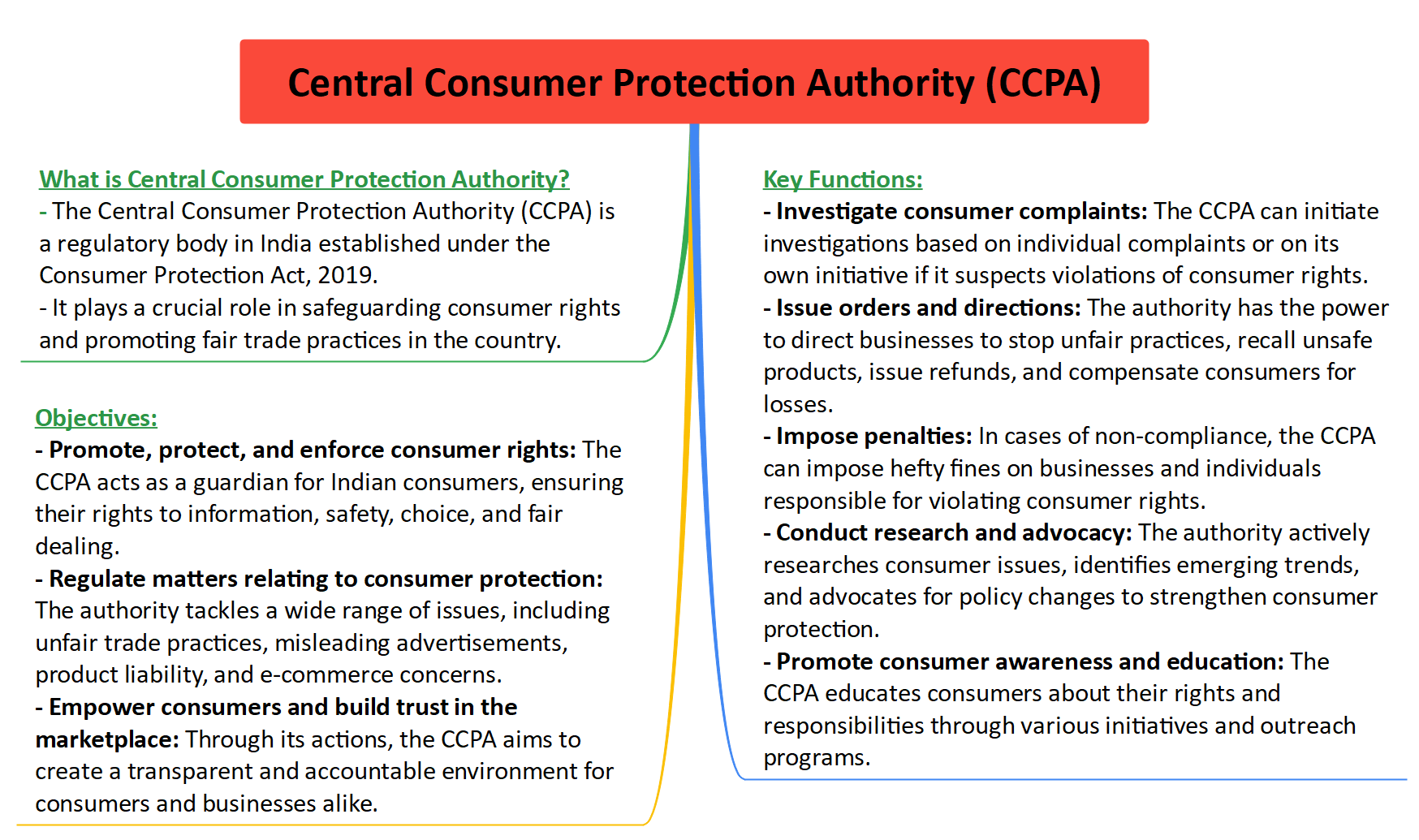





Copyright infringement not intended
Picture Courtesy: consumeraffairs.nic.in
Context: The Central Consumer Protection Authority (CCPA) has issued a notice to Amazon for selling sweets under the misleading name 'Shri Ram Mandir Ayodhya Prasad.'
Details
Key Points
Central Consumer Protection Authority
Significance of CCPA
|
Steps taken to strengthen consumer protection framework ●The National Consumer Helpline has been set up to provide guidance and assistance to consumers on various issues. It also registers complaints and forwards them to the concerned authorities or agencies for redressal. ●The Consumer App has been launched to provide a platform for consumers to access information, lodge complaints, track status, etc. It also provides features such as a consumer handbook, product recall alerts, consumer news, etc. ●The Online Consumer Mediation Centre has been established to provide online mediation services for resolution of consumer disputes. It also provides training and capacity building for mediators and stakeholders. ●The Grahak Suvidha Kendras have been set up to provide physical access points for consumers to avail of various services such as filing complaints, obtaining information, seeking guidance, etc. ●The National Consumer Disputes Redressal Commission (NCDRC) has launched its e-filing portal to enable the online filing of complaints and appeals before it. It also provides online case status, cause lists, judgments, etc. |
Challenges faced by CCPA
Way forward for CCPA
Conclusion

Must Read Articles:
Central Consumer Protection Authority: https://www.iasgyan.in/daily-current-affairs/central-consumer-protection-authority
|
PRACTICE QUESTION Q. In the context of platform-based work arrangements, where the traditional employer-employee relationship is blurred, how can existing consumer protection laws be adapted to protect the rights and interests of workers engaged in the gig economy? Should they be classified as consumers, and if so, what specific protections should be extended to them? |









© 2025 iasgyan. All right reserved